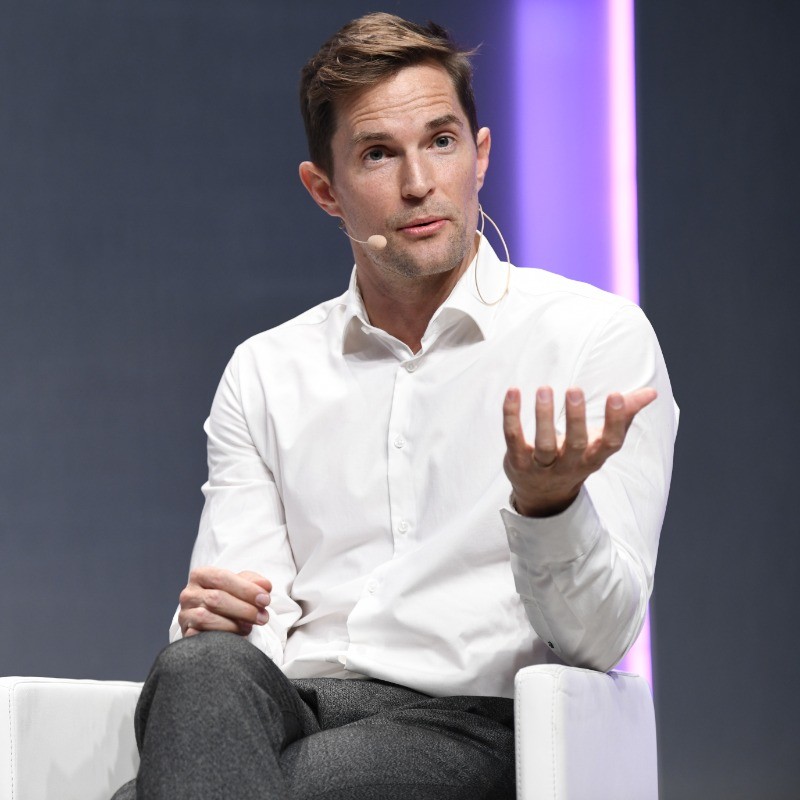Boosting Psychological Safety for LGBTQ Individuals in the Workplace with Mitchell Kenyon Davis
Psychological safety is a critical aspect of a healthy workplace culture, especially for individuals from marginalized communities. Mitchell Kenyon Davis, a cultural transformation and DEI (Diversity, Equity, and Inclusion) executive coach, offers deep insights into how organizations can create environments where LGBTQ individuals feel safe, valued, and empowered. Below, we explore some key strategies discussed by Mitchell Davis on the Talent Development Hot Seat podcast that can help augment psychological safety for LGBTQ employees.
Implement Inclusive Policies, Programs, and Benefits
One of the foundational steps in creating psychological safety for LGBTQ individuals is the introduction of policies, programs, and benefits that acknowledge and support their unique needs. Davis emphasizes the importance of gender-agnostic benefits and universal coverage that includes all letters of LGBTQ. This includes health benefits that cover gender reassignment surgery, hormone therapy, and counseling services, among others. By offering comprehensive, inclusive benefits, organizations signify their commitment to the well-being of their LGBTQ employees and pave the way for an environment of trust and safety.
Foster a Culture of Empathy
Andy Storch, co-host of the podcast, underscores the need for cultivating empathy towards the LGBTQ community. According to Davis, employees thrive when they feel understood and supported. Organizations can foster empathy by providing training programs that focus on understanding LGBTQ issues and experiences. Leadership should set the tone by openly supporting LGBTQ initiatives and encouraging conversations that promote empathy and understanding. An empathetic workplace can significantly amplify psychological safety, leading to more engaged and productive employees.
Embrace Authenticity
Mitchell Davis shares from personal experience the immense value of living authentically and how it has influenced their personal and professional journey. Davis, who identifies as non-binary and pansexual, stresses the importance of allowing employees to bring their true selves to work. This includes using correct pronouns, respecting identity expressions, and encouraging an inclusive environment where all employees feel comfortable sharing their identities without fear of retaliation or discrimination.
Lead with Confident Humility
Confident humility, as discussed by Davis, is crucial for leaders aiming to foster an inclusive culture. Leaders must balance confidence in their abilities with humility and a willingness to learn from others, especially those from underrepresented groups. This involves listening to LGBTQ employees' needs and understanding their unique challenges. Leaders who practice confident humility are better equipped to drive meaningful cultural transformations within their organizations, creating a safer space for LGBTQ individuals.
Data-Driven DEI Initiatives
Leveraging data is essential for impactful DEI initiatives. By collecting and analyzing data on employee experiences and needs, organizations can pinpoint specific areas requiring attention. Davis highlights the significance of using data to identify and address gaps in inclusion and psychological safety. Regular surveys, feedback mechanisms, and listening sessions are vital tools in crafting effective DEI strategies that genuinely enhance the workplace experience for LGBTQ employees.
Addressing the Challenges of Leadership Ego
Mitchell identifies ego as a significant barrier to cultural transformation. Leaders should prioritize the welfare of their teams and embrace changes that promote inclusivity, even if it means challenging their assumptions and biases. By cultivating a willingness to change themselves, leaders can inspire organizational change and foster a safer, more inclusive environment for LGBTQ employees.
Global Perspective on DEI Comparing
DEI efforts in different regions, Davis contrasts the regression observed in the US with Europe's progressive stance in protecting marginalized groups through legislation. He advocates a global approach to DEI, taking into account diverse issues such as disability, ageism, and transgender rights. By adopting a global perspective, organizations can develop more inclusive policies that cater to the needs of LGBTQ employees worldwide.
Creating psychological safety for LGBTQ individuals in the workplace requires intentional efforts and a deep commitment to DEI principles. By implementing inclusive policies, fostering empathy, embracing authenticity, leading with confident humility, leveraging data, addressing leadership ego, and adopting a global perspective, organizations can ensure that LGBTQ employees feel valued, protected, and empowered to thrive. The insights shared by Mitchell Kenyon Davis serve as a valuable guide for leaders and organizations striving to cultivate an inclusive workplace culture where everyone can flourish.
Mitchell Kenyon Davis, M.S. & M.A. is a culture transformation and DEI executive coach & strategic partner. He leads global culture & DEI programs in house at Autodesk and consults with other organizations in the tech, finance, automotive, hospitality and public sectors.
His master's degrees focused on International Development & Healthcare, and Emotional Intelligence, Coaching & Leadership Development. He's a certified coach by the International Coaching Federation with over 400 hours of executive coaching experience. He's also certified in the Intercultural Development Index, design thinking, Prosci Change Management, Birkman Coaching, Harvard Management and Mentorship, Situational Leadership, and Speaking with Impact.
With 11 years additional experience leading international teams in sales, corporate social responsibility, and entrepreneurial operations, he brings unique business insights to the work he does now. He lives between Barcelona and Berlin and has nationalities from the United States and Spain, although he likes to call himself a citizen of the world. Mitchell is a proud gay man and leverages his own personal journey to empathetically build bridges across differences. His passion and talent for breaking down barriers to new learning opportunities creates conscious human connection.

Listen to the podcast episode here:
Join us at the Talent Development Think Tank Conference!
Tired of attending boring industry conferences?
Then make sure you grab your ticket for Talent Development Think Tank 2024.
It’s happening on November 6-7, 2024 at the Aloft Orlando Lake Nona. And it’s officially the Least Boring Talent Development Conference you’ll ever attend (and the most impactful).
Here’s why you need to be at Talent Development Think Tank 2024. You’ll get:
- The latest industry trends/insights to help attract, develop and retain the best people in your organization
- Examples of best practice and proven strategies so you get can results faster (and avoid common pitfalls)
- Networking with industry peers, experts & thought leaders so you can build valuable connections that will help you excel in your current role (and your future career)
You’ll also hear from leading experts and thought leaders in the talent development space. Including Vayner Media’s Chief Heart Officer Claude Silver.
